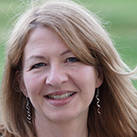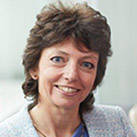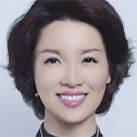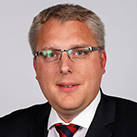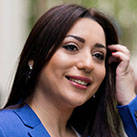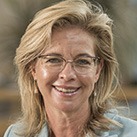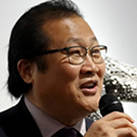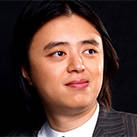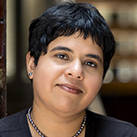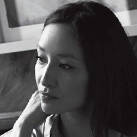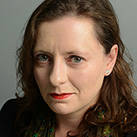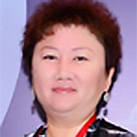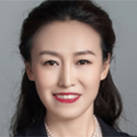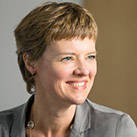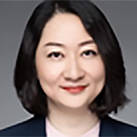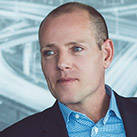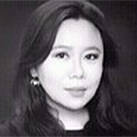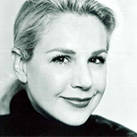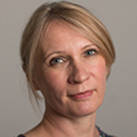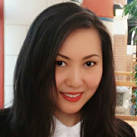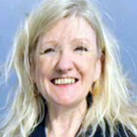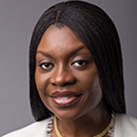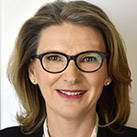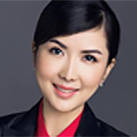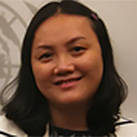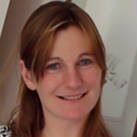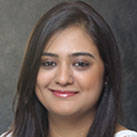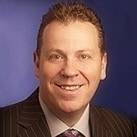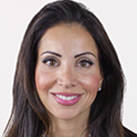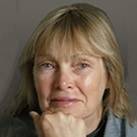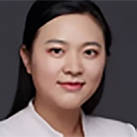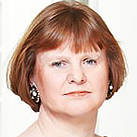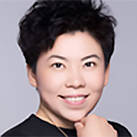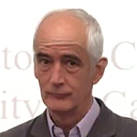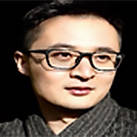Wo+Men’s Leadership Conference 2018

9 Jun 2018
09:00 -18:00
Times are shown in local time.
Open to: All

Cambridge Judge Business School
Trumpington St
Cambridge
CB2 1AG
United Kingdom
Overview
The hugely successful Wo+Men’s Leadership Centre’s annual conference returned to Cambridge Judge Business School on 9 June 2018. This 2018 theme was Growing Talent: Fostering Collective Success. The conference addressed the tools, relationships and mindset behind building and defining, either at a personal or organisational level, a successful career.
The discussion addressed topics of gender equality and evolving workplace dynamics while focusing on how both genders can work together to empower each other to achieve their goals across industries and cultures.
The day comprised a programme of keynote speakers, workshops and panel discussions by outstanding industry leaders and renowned Cambridge academics from an array of sectors as well as myriad networking opportunities.
Registration closed
Registration for this event is closed. If you are interested to hear about upcoming events and other Centre-related news and resources, please join our mailing list.
Programme
Day 1
9 June 2018
09:00 – 09:30
Registration
09:30 – 10:00
Opening and welcome
- Professor Christoph Loch, Director of Cambridge Judge Business School
- Professor Sucheta Nadkarni, Director, Wo+Men’s Leadership Centre at Cambridge Judge Business School and Professorial Fellow at Newnham College
- Jin Nan, Assistant Secretary General of China Women’s Development Foundation
- Xu Jin, Minister Counsellor, Chinese Embassy, UK
- Sara Huang, VP of VIPSHOP
10:00 – 10:45
Keynote address
Dr Deng Yaping
10:45 – 11:00
Refreshment break
11:00 – 11:50
Panels
Choose one of the following:
Media – help or hindrance to the debate on women and leadership?
Panellists:
- Kelly Ashton, Producer, Red Joan
- Helen Barrett, Work and Careers Editor, Financial Times
- Helena Carter, Presenter, Reporter ITV News
- Mary Hockaday, Controller, BBC World Service English
- Xuemei Sun, Phoenix TV Channel
Moderated by Boni Sones, Director, Effective Communications Strategy
Empowering the next generation of women – the role of NGOs
Panellists:
- Anke Adams, Head of Advocacy & Strategic Communications, Camfed
- RuiYing Li, student sponsored by CWDF
- Dr Pahini Pandya, Founder, Emparity
- Ying Qiao, Secretary-in-Chief, “Wardrobe of Love” public foundation
- Yue Shan, Executive Director, I DO Fund
- Michelle Thew, Chief Executive, Cruelty Free International
- Guangfeng Zhao, China Women’s Development Foundation
Moderated by Qun Yang, Co-founder, Biorbyt Ltd, Executive Director, Wo+Men’s Leadership Centre
A short Camfed film will run immediately after the NGO panel in Lecture Theatre 2.
12:30 – 13:45
Lunch
13:45 – 14:30
Keynote address
Joanna Natasegara, Film Director and Producer, in conversation with Mary Hockaday, BBC World Service English
14:30 – 16:00
Panels
Choose one of the following:
Gender diversity at the top: taking steps towards equality
Panellists:
- Gaenor Bagley, Former Head of People, PwC UK
- Dr Anino Emuwa, Founder of Avandis Consulting and Director of Nigeria Mortgage Refinance Company PLC
- Hui Liu, Deputy General Manager of Camsing Global, Deputy Executive Director, Camsing Caring Foundation
- Anna McDonald, Head of Large Corporate Banking for the East, Barclays
- Emma Pegler, Managing Director and Global Head of Banking and Research Regulatory Compliance, HSBC
- Dr Mark Powell, Vice President, CapGemini
- Arne-Christian van der Tang, Senior Vice-President of Group Human Resources, TomTom
Moderated by Dr Jenny Chu, University Lecturer in Accounting, Research Director, Wo+Men’s Leadership Centre
Career success: building a sustainable pipeline
Panellists:
- Paul Crouch, Director of Service Platforms, BT
- Khayala Eylazova, Senior Manager, PwC UK, Financial Services
- Bonnie Saynay, Global Head of Responsible Investment, Invesco
- Glory Cheung, Chief Brand Officer, Huawei Consumer Business Group
- Yi Sun, Vice Secretary General, Tencent Foundation
- Lin Yue, Executive Director, Goldman Sachs Asset Management
Moderated by Helen Stevenson, Non-Executive Director, Trinity Mirror
16:00 – 16:15
Refreshment break
16:15 – 17:30
Workshop: “Listening for leaders and followers”
Professor Nicola Clayton FRS & Clive Wilkins, MMC
17:30 – 17:40
Closing address
17:40 – 18:30
Drinks reception
Speakers
Anke Adams
Head of Advocacy & Strategic Communications, Camfed
Camfed is an international non-profit organisation dedicated to tackling poverty and inequality by supporting marginalised girls to go to school, succeed, and lead. Anke is a communications specialist and the product of the world’s first bilingual community school in Berlin, Germany. She holds a BA in North American Literature and Politics, a BA in Political Science, and an MSc in International Relations. Her international communications and marketing career spans Germany, the United States, and the United Kingdom, and industry sectors as diverse as aviation, IT, the leisure and food industry, and the child-centred charity sector.
Anke’s passion for education and female leadership, and her keen awareness of the privilege an education affords, led her to join Camfed in 2014 to amplify the voice of marginalised girls, and underscore the expertise of the young women leaders in Camfed’s alumnae network, CAMA. Anke supports the CEO, national directors and CAMA alumnae by driving strategic communications, public and media relations, as well as public engagement, digital communications, and advocacy campaigns and events.
Gaenor Bagley
Former Partner and Head of People, PwC
Gaenor is the former Head of People of PwC in the UK, where she was responsible for all HR matters for the 19,000 people in the UK. She joined PwC in 1992 as an M&A Tax advisor, became Partner in 2000, and led the Private Equity Tax and M&A Tax team from 2008 to 2011. In 2011, she became an Executive Director of the UK Board, responsible for developing the firm’s People strategy and CSR strategy, a role she held until 2016. From July 2016 to 31 December 2017 Gaenor was Head of Corporate Purpose at PwC, responsible for PwC’s CSR agenda and she also chaired the Brexit Steering Committee.
Gaenor retired from PwC in December 2017 and is building a portfolio of non-executive roles.
Helena Carter
Presenter, Reporter ITV News
Helena has worked for ITN and ITV since 2010, and recently set up her own production company. She covers national, regional and international stories – from live reporting on breaking news to exploring the depths of the Peruvian jungle and wing-walking over the Channel Islands.
She has a degree in Modern and Medieval Languages, and worked as a teacher in Ecuador and a translator in France, before focusing on a career in broadcast journalism.
Glory Cheung
Chief Brand Officer, Huawei Consumer Business Group
As Chief Brand Officer of Huawei Consumer Business Group (CBG), Glory steers its marketing, advertising, design, public relations and customer focus. Her expertise in brand management and international market development has helped Huawei become number 72 on Interbrand’s 2016 Best Global Brands list. She joined Huawei in 2001, in its second year of operation, and led the development of its 3G technology in South East Asian markets such as Hong Kong, Taiwan and Japan. Later she led Huawei CBG’s PR and Marketing Communications team during the introduction of Huawei’s smartphone business globally. Glory was the first Marketing Director of Honor and has been a key player in the development of Huawei’s e-commerce business since 2012.
Paul Crouch
Director of Service Platforms, BT
Paul is Finance Director of Service Platforms at BT (TV, Broadband, Mobile and Voice technologies). He has a Bachelor’s Degree from Bath University in Mathematics and Computing and an MBA from Cambridge Judge Business School. Paul is a also a volunteer Debt Advisor and advisor to the The Eth Word on business ethics. He is married to Cheryl and has a son and a daughter. He is actively involved in the Tech Women Programme at BT are cares deeply about ethics, equality and socially responsible supply chains.
Khayala Eylazova
Senior Manger, PwC
Khayala is a Senior Manager at PwC UK, Financial Services. She is responsible for developing and driving insurance and investment management, consulting propositions, services and opportunities, working closely with industry leadership team and senior clients across all line of services. Khayala is also leading the firm’s ‘Women in InsuranceTech’ initiative, which aims to empower the next generation of female leadership, bring more women into insurance and technology, inspire, advance and provide mentorship and support in their career progression.
Prior to joining PwC Financial services, Khayala worked at Microsoft EMEA, APAC and CEE HQs for almost 10 years, holding various senior roles within consulting, global business development and channel sales covering different sectors and segments. She led teams comprising business development, sales, marketing and geographical expansion. She was awarded ‘Best Start-Up’ at one of the Venture Creation Weekends at Cambridge Judge Business School in 2016 for proposing a bracelet for epileptic suffers.
Khayala was a finalist at the Women in IT awards 2018 and Women in Insurance awards 2019. Recently she has received PwC Chairman’s Empowerment award for her efforts in leading and driving Diversity & Inclusion, Women in Technology, leadership initiatives for the firm and beyond.
She holds an Executive MBA degree from Cambridge Judge Business School, University of Cambridge, and MSc degree in International Management from BI Norwegian Business School.
Tracey Horn
Executive Director, Wo+Men’s Leadership Centre
Director of Corporate Communications and Marketing Cambridge Judge Business School Executive Director of the Wo+Men’s Leadership Centre
Tracey is passionate about improving gender diversity, through dialogue and action, and is a founding member of Cambridge Judge Business School’s Equality, Diversity and Inclusion committee.
Tracey is a member of the senior leadership team, with responsibility for overseeing
externally facing communications and corporate marketing. She is also a member of the European
Foundation for Management Steering Committee and a mentor to students at her alma mater, the University of St. Andrews. Tracey’s background is in outreach, engagement, and PR.
In her early career, she project-managed the creation, operational running and marketing of museums, including the Museum of Rugby and Twickenham Experience Tours at England Rugby, Twickenham. She developed engagement and
partnership programmes as Director of Outreach for the NASA Specialised Center of Research and Training in the Research Triangle, North Carolina and for ScottishTelecom, in Edinburgh, Scotland.
Tracey holds degrees from the University of St Andrews and the University of Aberdeen, has
completed the Executive Education Cambridge General Management Programme, at Cambridge Judge, and is now embarking on an Executive MBA at the Business School. In her spare time, she runs marathons.
Xu Jin
Minister Counsellor, Chinese Embassy, UK
Minister Counsellor, Chinese Embassy UK
Xu Jin is the Minister Counsellor of the Economic and Commercial Office of Chinese Embassy in the UK. He has held the positions of the President of Academy for International Business Officials (AIBO), MOFCOM and the Deputy Director General of the Department of American and Oceania Trade Affairs, MOFCOM.
Minister Counsellor Xu Jin completed his Advanced Management Programme at Harvard Business School (AMP 155) USA. He also attended the Export Promotion Training Program by EU at Trinity College of Dublin, Ireland. Xu Jin graduated from the University of International Business and Economics, China.
Ying Li
Director General of Beijing Art Traditional Handicraft Culture Development Center, Initiator of Mom’s Handworks project
Mr Li has many years of experience and achievement in product innovation, brand consolidation and management experience in the creative design industry. He has held senior management positions in many international and Chinese corporations.
Mr Li strives to explore operating business model and social innovation between NGOs and market economy through win-win models, to achieve the globalisation of Chinese cultural symbols and sustainable innovative development of NGOs for Chinese women groups.
Mr Li and his team have received the silver medal at the Chinese advertisement festival. They have also won the third place at the New York Advertisement Festival in the US, the German Red Dot Electronical Award, the 2008 Olympic game outstanding contribution award and the CSR innovation award by the Ministry of Culture in China.
Professor Christoph Loch
Director of Cambridge Judge Business School
Professor Christoph H Loch is the Director (Dean) of Cambridge Judge Business School. Since 2011, Cambridge Judge has progressed as one of the top 20 business schools in the world, with a high evaluation of its research by the UK government (REF) and with research centres that successfully combine the creation of research output of the highest academic quality with a tangible impact on business practice and society.
Cambridge Judge Business School actively supports the Cambridge Cluster, helping entrepreneurial talent development and commercialisation of new ideas; enhancing management development, enabling growth, and sharing thought-leadership.
Professor Loch’s research focuses on the management of innovation processes, and project management more broadly; including innovation strategy; projects under high uncertainty; the emotional aspect to the motivation of professional project workers, and project supervision and governance.
Before coming to Cambridge Judge Business School in 2011, Professor Loch was Chaired Professor of Technology and Operations Management at INSEAD, where he also served as Dean of the PhD programme and as the director of the INSEAD Israel Research Center. He served as department editor and Associate Editor of Management Science, Manufacturing & Service Operations Management and Production and Operations Management, and as chair of the Behavioral Operations Section of INFORMS.
Professor Loch holds a PhD from the Graduate School of Business at Stanford University, an MBA from the University of Tennessee in Knoxville, and a Diplom-Wirtschaftsingenieur degree from the Darmstadt Institute of Technology in Germany.
In 2012, Professor Loch was identified in a benchmarking study as one of the top 10 innovation researchers world-wide. He serves on the supervisory board of an educational software startup company and is a member of the Cambridge United Football Club board of directors.
Dr Sucheta Nadkarni
Director, Wo+Men’s Leadership Centre, Sinyi Professor of Chinese Management and Head of the Strategy & International Business Subject Group at Cambridge Judge Business School Professorial Fellow, Newnham College
Sucheta’s primary research interests include strategic leadership with a special focus on female rise to corporate boards and executive leadership positions. She has published extensively in leading academic journals in management. She is an associate editor of Academy of Management Journal and Journal of Management. She also sits on the editorial of four other leading academic journals.
She has worked on research projects and grants with companies such as Boeing, Booz Allen Hamilton, Newton Asset Management, BNY Mellon and 30% club. Her research on female rise to boardrooms has been featured in global media outlets including New York Times, Forbes, CNBC, Huffington Post, Reuters, The Guardian, The Telegraph, The Scotsman, Economic Times, Times of India, Herald Tribune, Borsen, O Globo, The Times (Kuwait), Business Standard and Folha De Sao Paulo.
Joanna Natasegara
Film Director and Producer
Joanna Natasegara is a multi award-winning producer and founder of UK based production company, Violet Films. Joanna produced the BAFTA and Academy Award® nominated feature documentary Virunga (2014) which has won over 50 international awards including an Emmy, a Peabody and Grierson.
Joanna has led multiple Doc Impact Award-winning global campaigns, including No Fire Zone and Virunga, which successfully stopped a British oil company from illegally exploring for oil in Africa’s oldest national park.
Most recently, Joanna produced the Netflix Original short documentary, The White Helmets about the heroic work of the Syrian rescue volunteers, who were nominated for the 2016 Nobel-Peace Prize.
Emma Pegler
Managing Director and Global Head of Banking and Research Regulatory Compliance at HSBC
Emma Pegler is a Managing Director and Global Head of Banking and Research Regulatory Compliance at HSBC. Prior to that she was a lawyer at the US investment bank, Merrill Lynch. She started her legal career at Linklaters international law firm before moving in house. She read Modern History at St Catherine’s College, Oxford and then converted to law at the College of Law, Chancery Lane. In addition to a passion for dance which took her on a sabbatical to Buenos Aires to learn the Argentine Tango, she also runs a smallholding in Bedfordshire to help keep balance in her life.
Ying Qiao
Secretary-in-Chief, “Wardrobe of Love” Public Foundation
Ying worked in the real estate industry in Beijing for nearly two decades. Since 2006, she has been initiating an online campaign targeted at helping children in poverty or suffering from painful diseases.
In June 2011, she quit her job and worked together with a few close friends to establish the “Wardrobe of Love” public foundation. In the last seven years, the foundation has raised more than RMB 43 million yuan that has benefited some 190,395 kids from 1,783 schools in 310 counties, 28 provinces and autonomous regions, including Gansu, Guizhou, Xinjiang, Tibet, Qinghai, Yunnan, Sichuan and Hunan with windproof, rainproof and breathable warm clothes. The foundation is dedicated to call on people in kind, volunteers and enterprises to raise awareness of mental care issues and educational difficulties of children in poverty-stricken areas.
Yue Shan
Executive Director of I DO Fund
Yue has been engaged in fashion brand marketing for more than 15 years and has created a jewellery collection brand with international designers that brings global fashion jewellery to the China market. She is qualified as a national intermediate jewellery appraiser and has been engaged in the development of traditional handmade culture for many years. She has unique insights into design, craftsmanship, fashion and traditional Chinese culture. Since 2015, she has devoted herself to public welfare and is committed to solving problems of cultural heritage and children’s education in underprivileged areas with cross-border thinking.
Helen Stevenson
Non-Executive Director, Trinity Mirror PLC
Helen comes from the North East and studied Natural Sciences and Chemical Engineering at Trinity Hall Cambridge (1979-1983)
She started her career with Mars where she spent 19 years. She became the youngest director by the age of 30, responsible for the European supply and logistics function. She transferred to marketing in her 30’s, culminating in her role as European Marketing Director, leading category strategy development across Europe.
She joined Lloyds TSB in 2003 as Director of Group Marketing responsible for the group brand portfolio and the retail customer experience. She then spent five years as Chief Marketing Officer at Yell Group UK driving the transformation of the business from a print publisher to a digital marketing services organisation for SME’s.
Helen has additionally served as a non-executive director on the main board of the Department of Work and Pensions and worked for the Cabinet office. Helen now divides her time between non executive work and consulting, with a focus on businesses looking for enhanced customer led growth and valuation.
She sits on the Henley Business School Strategic Advisory Board, and is a non-executive Director of Trinity Mirror PLC, St Ives PLC and Skipton Building Society and a Governor at Wellington College. She is Senior Independent Director at Trinity Mirror and chairs the Remuneration Committee at St Ives and Skipton Building Society and sits on the Risk Committee at Skipton Building Society.
She is married to Nick Walford and has three daughters.
Yi Sun
Vice Secretary General, Tencent Foundation
Yi is involved with the strategic management and running of Tencent Foundation’s portal website, crowd-funding platform, and 99 Giving Day, the most popular online fundraising campaign in China.
Yi received her bachelor’s degree in International Relations from Fudan University in China. She has more than seventeen years work experience in the Internet industry, and has focused her observations on domestic and international new media. Meanwhile, she is primarily interested in the development of internet information, the study of internet users’ experience and the management of internet products.
Arne-Christian van der Tang
Senior Vice-President of Group Human Resources, TomTom
Passionate about people, innovation and agile working, Arne-Christian takes an entrepreneurial approach to HR.
Throughout his career Arne-Christian has led the way in the alignment of HR to business and company objectives. His vast experience in management roles has given him a different perspective on HR and organisational effectiveness, forming his unique and strategic approach to business challenges.
Arne-Christian’s career began in the early nineties, when he started a Human Resources course at the University of Rotterdam, but dropped out. He embarked on a career in commercial and operational management roles, working for a Texan freight forwarding organisation, Eagle Global Logistics.
After 11 years with one company, now CEVA logistics, Arne-Christian moved from his role as HR Director for EMEA to TomTom in 2008. Fascinated by the business, he joined as HR Manager for TomTom’s Customer Care unit. He was quickly promoted, after just one year, to a member of the Consumer Management Board. Since early 2014, Arne-Christian has held the position of Senior Vice-President, heading the global HR team.
Under his leadership, the department has embarked on a change path with a clear strategy, relentless ambition and pragmatism. Ensuring HR is relevant for the needs of the business and operating an insight driven product orientated function, with the overall objective for TomTom to become the tech employer of choice in Europe. In 2016, Arne-Christian was awarded CHRO of the Year – Lifetime Achievement.
Qun Yang
Executive Director, Wo+Men’s Leadership Centre, Co-founder, Biorbyt
Qun is a seasoned entrepreneur and an investor. She has many years accounting and investment banking experience. Qun has co-founded Biorbyt Ltd, a biotech company in Cambridge and is the shareholder of an investment management fund in London, focusing on cross-border M&A between China and Europe.
Currently she is the City Head of Cambridge of East Anglian Society of ICAEW, the executive director of the Wo+men’s Leadership Centre at Cambridge Judge Business School and actively running the European alumni network for Shanghai University of Finance and Economics (SUFE).
Lin Yue
Executive Director, Goldman Sachs Asset Management
Lin’s role specifically involves growing and managing key relationships across the UK institutional investor base. Day to day, she represents the firm and works closely with Chief Investment Officers, Pensions Directors, CFOs from FTSE 350 companies and Charities.
She was the winner of the “Excellence in Banking” award at the Chinese Business Leaders Awards in 2016 and has also been recognized in Brummell’s 2017 list of the most inspirational women in the City of London.
She is an industry advocate for enhancing cultural understanding, women leadership and diversity and inclusion among the broader business community, both with her clients at Goldman Sachs and as a founding member and chair of the 48 Group Club Young Icebreakers.
Lin graduated with an MSc in Experimental Psychology from Oxford University with a special focus on Behavioural Finance.
Kelly Ashton
Film and Theatre Producer
Kelly has produced films in London, New York and Los Angeles. Her current production, The Seagull, starring Saoirse Ronan, Annette Bening and Elizabeth Moss is showing in cinemas in the United States and will open in the UK in September.
Kelly has served on various US and International Boards of Directors, including General Host Corporation, 975 Park Avenue Corporation, The Peruvian Association, Helpline Crisis Centre (the oldest crisis line in America), The International School of Turin, and the Board of Aiglon College. Kelly is also a BAFTA Ambassador.
She holds a BA from Yale University and MBA from the Harvard Business School.
Helen Barrett
Work and Careers Editor, Financial Times
Helen writes on leadership, management, entrepreneurship, business education and working life. The Financial Times has made a huge effort to serve and engage female readers in recent years by boosting its coverage of gender pay and equality in the workplace, and Helen’s department is at the forefront of that effort.
She has worked at the FT since 2012, most recently as deputy editor and multimedia journalist for FT Special Reports.
Before retraining as a journalist in 2005, she spent a decade working in advertising, latterly for ITV as an editorial adviser. She holds degrees from the universities of Bristol and Leicester, is married with two sons and lives in London.
Dr Jenny Chu
Associate Professor, Cambridge Judge Business School
Dr Jenny Chu is an Associate Professor at Cambridge Judge Business School, University of Cambridge. Her main research interests include earnings quality, capital market reactions to financial reporting, as well as management incentives and corporate governance. She is also passionate about research on how gender and diversity issues are linked to corporate governance and firm performance. Her research has been published in top academic journals such as Management Science, as well as covered by the popular press such as the Financial Times, the New York Times, Reuters, The Times (UK), and the Wall Street Journal.
Jenny combines teaching and research with a background in investment banking and portfolio management. She worked on corporate finance and M&A transactions for technology companies at Credit Suisse in Silicon Valley. She later transitioned into a portfolio management role at the hedge fund division of Barclays Global Investors (now Blackrock). Jenny holds MBA and PhD degrees from the Haas School of Business, UC Berkeley.
Nicola S Clayton
Professor of Comparative Cognition, Department of Psychology, University of Cambridge
Nicky is particularly interested in the processes of thinking with and without words, comparing the cognitive capacities of crows and children. Nicky read Zoology at the University of Oxford and then a PhD in bird song learning at the University of St. Andrews before returning to the University of Oxford as a University Research Fellow and a Junior Research Fellow at Linacre college, Oxford. She was appointed assistant professor at the University of California Davis in 1995 and rapidly rose through the ranks to associate professor in 1998 and full professor and chair in animal behaviour in 2000. Later that year she returned to the UK to take up her current position in the department of psychology at the University of Cambridge. She was elected a Fellow of the Royal Society (FRS) in 2010 and is also Scientist-in-Residence at Rambert (formerly Ballet Rambert), a position she has held since 2011. She has over 200 publications, and an H index of 69.
Dr Anino Emuwa
Founder of Avandis Consulting and Director of Nigeria Mortgage Refinance Company
Dr Anino Emuwa is an international management consultant and experienced non-executive director. She is the founder of Avandis Consulting in France. Her firm provides research-led strategy and financial advisory services to entrepreneurs and CEOs. Anino leads management development seminars for women business owners and runs a one-on-one business clinic for female entrepreneurs. She sits on the board of the Nigeria Mortgage Refinance Company which is supported by World Bank funding and is Chair of the Audit Committee.
Dr Emuwa started out her career in corporate banking with Citibank where she was a member of the bank’s credit committee with responsibility for a portfolio of multinational corporations. She has spent over twenty years researching and working with smaller businesses, entrepreneurs and business leaders in several countries across Africa. In particular, she is a financial institutions advisor on SME lending. Anino holds a BSc in Economics from the London School of Economics and an MBA from the Cranfield School of Management. She studied entrepreneurship at doctoral level at EM Lyon and was awarded Doctorate in Business Administration by Nottingham Business School for her research on bank lending to SMEs. She is an Alumni Fellow of NBS and mentors female management students. Anino is an AACSB endorsed business school instructional practitioner.
Anino is a regular speaker, moderator and panellist at entrepreneurship conferences and events. She is a member of the Institute of Directors, London; the Institute of Small Business and Entrepreneurship, UK; and the European Council for Small Business and Entrepreneurship. Anino is bilingual in English and French.
Mary Hockaday
Controller, BBC World Service English
Mary is Controller, BBC World Service English, a role she took up in October 2014. She is responsible for the BBC’s radio and digital audio services in English for global audiences, reaching 75 million people weekly around the world. For the five previous years she was Head of the BBC Newsroom, overseeing the BBC’s daily television and radio news bulletins and the BBC news website for domestic and global audiences.
Mary was the Editor of BBC World Service News and Current Affairs for five years from 2001 to 2006. Under her leadership, WSNCA won a Special Sony Gold award in recognition of its 9/11 coverage.
In the early 1990s Mary was based in Prague as correspondent for the BBC and The Independent, covering post-communist Czechoslovakia.
She is a trustee with the Girls’ Day School Trust and an honorary fellow of Trinity Hall College, Cambridge. She has two children and lives in London.
Sara Huang
VP, VIPSHOP
Ms Sara Huang joined VIPSHOP in February 2017 as Vice President, running the Department of Public Relations and Corporate Social Responsibility with the goal of escalating corporate brand reputation and influence in the world.
With more than 10-years experience of communication and public affairs management, Sara has been dedicated to establishing CSR strategies for VIPSHOP with the vision of empowering Chinese women and supporting their sustainable development.
Sara also serves as the Vice President of Guangdong Youth Entrepreneurs Association. She is also the member of Guangdong Youth Federation and Guangzhou Youth Federation.
Hui Liu
Deputy General Manager, Camsing Global Deputy Executive Director, Camsing Caring Foundation
Camsing Global is a large brand PR company. Born in 1970, Ms Liu graduated from HEC Business School in Paris, France, and received a masters degree. She is mainly responsible for the company’s chief executive office management, focusing on corporate social responsibility.
Anna McDonald
Head of Large Corporate Banking for the East, Barclays
Anna has recently been appointed Head of Large Corporate Banking for the East. Anna and her team support large businesses across the East of England to enable them to achieve their growth aspirations. Previously, Anna led the Higher Education specialism for the East providing funding and operational banking to Higher and Further Education Institutions throughout the region. She was co-founder of the Cambridge Women’s Forum, which has recently merged with Impact Women Network and now sits on their steering committee. Before moving to Cambridge, Anna worked in Investment Banking specialising in global syndicated debt at Barclays Capital, Societe Generale and BNP Paribas. She is married with three children and loves running, cycling and chilling out with her family.
Jing Nan
Assistant to the Secretary General of the China Women’s Development Foundation
Jing has a masters’ degree from the Law School of Peking University. She joined the China Women’s Development Foundation in 2006, and has extensive experience in programme coordination and management of charitable projects, such as Water Cellar for Mothers project, Mom’s handworks project and the Super Mom project.
Dr Pahini Pandya
ounder, Emparity
Coming from a family of women leaders and their supporters who worked tirelessly towards women empowerment in India, it has been Pahini’s lifelong desire to help people and make an impact.
This drive led her to pursue a PhD in cancer research at King’s College London followed by postdoctoral studies at the University of Cambridge. Throughout her journey as a scientist, Pahini has explored ways to facilitate women led translation of research to the wider community through several leadership positions as the President, Innovation Forum (KCL), Vice-President, Cambridge Consulting Network and Committee member, Entrepreneurial Postdocs of Cambridge. This led Pahini to her own tech venture which uses technology to empower patients and doctors for improving healthcare access.
To further her remit, she also founded a non-profit, Emparity, which empowers women and educates children to eliminate poverty in India via sales of hand-made totes in the UK. Pahini believes that progress can be made through a collaborative approach and seeks to establish it in all her endeavours.
Mark Powell
Vice President, CapGemini
Dr Mark Powell is a Vice President and Head of Capgemini’s UK Insights and Data Practice. He is also a business writer, consultant and entrepreneur. A business and strategy consultant for over 25 years, Mark has held Partner roles in Accenture, Fujitsu, Aon, KPMG and A.T. Kearney, in addition to running several start-up businesses. He lectures on subjects including strategy development, leadership, power and influence, and was one of the first UK gurus in the Futureworld network, futureworld.org.
Mark read Economics and Management and gained a PhD in Organisational Behaviour, both from the University of Cambridge.
Mark has also had a long and successful career as a competitive Latin American dancer during which he won more than 50 titles including two World Championships.
Bonnie Saynay
Global Head of Responsible Investment, Invesco
As Global Head of Responsible Investment for Invesco, Bonnie oversees responsible investment, environmental, social and governance (ESG), investment stewardship practices, proxy voting, and governance across the organisation. She is supported by a team of eight and governance analysts located around the world.
Additionally, Bonnie supports industry advocacy around responsible investment. She is a member of the UN Sustainable Development Goals Working Group, has been named to the advisory board of the Deep Data Delivery, and serves on the Principles for Responsible Investment Advisory Committee for ESG Engagements (an industry advisory effort). Bonnie has more than 20 years’ experience in process improvement, consulting and program management in both the public and private sectors. She earned a bachelors degree from the University of Michigan in Ann Arbor and a master’s degree from Wayne State University in Detroit.
Boni Sones OBE
Policy Associate, Centre for Business Research; Executive Producer, ParliamentaryRadio.com
Boni Sones has worked in the media for 40 years in Print radio TV and now Web journalism. She specialises in broadcasting through the web in Cambridge and one day a week with women in Parliament. In 2009 she was awarded an OBE for services to broadcasting and in 2008 she was nominated as one of the most influential women in Britain by public policy magazine. In 2005 her book on women in Parliament was nominated for the Orwell Prize in journalism. Last year her parliamentaryradio.com for women won an international award from The International Association of Women in Radio and TV. The only UK winner.
Xuemei Sun
Head of Public Benefit Sector, Phoenix New Media, Founder of Girls’ Protecting in China, President of Beijing All-in-One Foundation
Ms Sun took initiative of Girls’ Protecting together with 100 female journalists in 2013. By the end of March 2018, Girls’ Protecting covers more than two million children and 450 thousand parents in 29 Provinces. The programme includes educating children to protect themselves from sexual abuse; paper research and relevant policy advocating.
Ms Sun has received many honours including CCTV Annual Charity Person, Influential Women in China, Public Welfare Figure of the year, and Beijing Youth Medal.
Michelle Thew
Chief Executive of Cruelty Free International
Michelle is one of the most respected and accomplished individuals in the animal protection movement. Cruelty Free International is the leading organisation working to end animal experiments worldwide.
Cruelty Free International undertakes award-wining campaigning, challenging decision-makers to make a positive difference for animals, championing better science and working with corporate partners to promote cruelty free living.
Cruelty Free International runs the globally recognised Leaping Bunny certification programme, encouraging companies worldwide to go cruelty free.
Michelle has worked with governments, regulatory agencies, local communities, and media across the globe. Michelle led the campaign to end cosmetics testing on animals in Europe and spearheaded the largest global campaign dedicated to making cosmetics cruelty free. She is currently leading efforts at the UN to achieve a worldwide end to the practice of using animals in the beauty industry.
Michelle has championed the cause of animals across the world, speaking on their behalf in Parliament and Congress, briefing politicians and taking the message to media, regulators and industry representatives from Europe and the US to Australasia and Asia.
Dr Deng YaPing
Founder, Deng YaPing Sports Industry Investment Fund
Deng YaPing holds a Ph.D. in Land Economy from the University of Cambridge and is a famous table tennis athlete, Olympic Champion and ambassador of the charitable project “Super Kind Mum”.
She started to learn table tennis from her father at the age of five. Selected into the Chinese national team in 1988, she went on to obtain 14 world champion titles. Ranked as the number one player in table tennis for eight consecutive years, she is the only female athlete to be world number one for such a long time. She achieved four Olympic gold medals.
Clive A P Wilkins
Artist-in-Residence, Department of Psychology, University of Cambridge
Clive is a fine art painter and writer, and a Member of the Magician’s Circle (MMC). Clive’s paintings have been frequently seen in London Mayfair art galleries including at the National Portrait Gallery, London. He has also exhibited at the Royal Academy and in private galleries in Cork Street, London – where he had a one man show in 2007. His work can be found in public and private collections. Clive has produced portraits of Sir Howard Hodgkin and Sir Peter Blake, amongst others.
His written work has appeared in print on numerous occasions, most notably in his published work ‘The Creatures in the Night’, a story written and lavishly illustrated by Wilkins in 2008 and most recently ‘The Moustachio Quartet’, a novel in four parts. It explores imagination and questions aspects of consciousness and reality amidst the miasma of being.
Guangfeng Zhao
Director, Funded Project Department, CWDF Speaker bio
As a project leader, Zhao Guangfeng has worked for the China Women’s Development Foundation (CWDF) for 12 years, focusing on women’s charities with sustainable developing strategies. He has successfully initiated several charity projects such as “Mother’s Parcel Post” (helping women in poverty with daily necessities, China Charity Award 2013), “Mom’s Handmade” (focusing on saving traditional handmade arts and suburban poverty reduction) and “Super Mom” (online crowd-funding platform of women-related charities). In co-operatation with the Sino-American Friendship Association, Zhao initiated the “Women Empowerment and Sustainable Development Summit” which has been an annual event since 2014.
Videos
Keynote speaker: Dr Deng YaPing
Highlights from Dr Deng YaPing’s keynote address, ‘From foot-binding to the Olympics’.
[MUSIC PLAYING] [APPLAUSE]
Today, I’m quite nervous because, as Jessica mentioned, I graduated from here about 10 years ago, I got my PhD.
But the first time I came in this room in 1998, which is just finished my career, retired from professional athletes. In 1998, I came here, just a language student, but came here to attend the lecture, which is a talk about the Chinese company development.
So in that day, I started to dream if one day I can become student of Cambridge. But at that time, I said to myself, probably no chance at all because I just started to learn English. How can I start to study in Cambridge? So I said to myself, I said, oh, probably not, maybe the next life rather than this life.
But you know, that as a dream still in my mind. So I started working extremely hard. And finally, I got my PhD in 2008.
[APPLAUSE]
I the key highlight for me was Deng YaPing, who is an 18 times world champion in ping-pong. And it was her insight that she had gleaned in the course of her PhD studies, in terms of gender balance in sport and particularly, gender balance in sport in China, and how it showed that, in fact, Chinese women are more resilient than the Chinese male athletes. So that was really insightful.
[MUSIC PLAYING]
Why say not women are stronger, men are weaker? Is that really true?
Yeah.
Yes?
[LAUGHS]
Since when I was young, I always tried to make to something different. I wanted to make something to try my best and to achieve my personal goal. I don’t know if it really will be successful or not. But I just wanted to try. So I think one thing, once I’ve done, and I want always pour full attention to, and for all the energy and all the passionate. I think everything, once you have the passionate, all your energy, and the heart working, I think you’ll be very close to success.
All the men here should support, give more opportunity to the ladies. Thank you very much.
[APPLAUSE]
Keynote speaker: Joanna Natasegura
Joanna Natasegara, Film Director and Producer, in conversation with Mary Hockaday, BBC World Service English.
[MUSIC PLAYING] Today, I’m going to be sharing my experiences of working in the film industry as a woman and understanding how film and business can work closely together.
In essence, I think you can compare a producer to a CEO in the context of where we’re sitting today and the roles that some of you have or may have in the future. You know, you’re really there to guide the ship and whatever that means. So that means to set strategy. It means to hire the right crew, to do the best work, to make sure that the entire vision of the thing is moving forward.
I particularly appreciated the keynote by Joanna Matasegara, who was very inspiring and made me realise how I really want to have an impact in my life, maybe not as great as she did. But I do want to give some purpose to my life and my career.
And some people may know, but– may not know that the whole issue of the White Helmets is then extremely controversial. And there was a real argument and a campaign, ultimately, of sort of disinformation about, did they really exist in fact, and certainly, who was behind them, and were they, in fact, linked to extreme militants and so on and so forth. I mean, how did you deal with that?
Yeah.
As a producer– you know, you’re the producer. You’re in charge and responsible for the whole enterprise here. How did you deal with that kind of context?
What was interesting was that they said, we get Syria pitches every day. Why is this one different? And the difference, I think, was that it was a positive story about Syria, which was just almost unthinkable, considering the scale of the war at that point. So it’s always interesting to think around the box. So you know, how can you still bring positive examples out of some of the darkest places in the world?
Could you say something about– you’ve said already, you work in a business that is innately collaborative, has to be collaborative, and you bring these teams together, very multi-dimensional, and in a way, multi-channel. What does leadership look like? What sort of leader are you?
Yeah, we talk about the word all the time. And I feel a real responsibility, both to my teams, to the crews, but also to the films because, in some ways, as filmmakers, you’re putting yourselves out there as advocates for those people whose stories– who have been generous enough to share their stories with you, often in very dangerous and difficult circumstances. So I see leadership more than anything as a responsibility to serve, to serve their stories, to serve your teams, and to protect where you can when, actually, all the time, what we’re doing is taking risks.
At the same time, we talk a lot in my team about leadership in both directions, leadership from below and above. I think there needs to be– because film is so collaborative, I think that leadership is 360 within the team.
It’s always challenging being a woman, especially on set, particularly if you’re working in conflict areas where there aren’t as many women. You have particular challenges if you’re working in places like DRC or on the Syrian border. It’s even more dangerous or threatening than it would be for the men. So I can’t say that it’s been straightforward to be a woman in the film industry. But it’s also– there are plenty of opportunities. There are lots of female filmmakers. And that number is growing.


